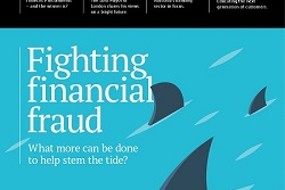Managing Money in the Millennial Age
- Gary Sunderland
What impact are changing attitudes to life having on financial advice? We take a look at managing money through a millennial lens.
How are changing attitudes to marriage, children, living arrangements and work – particularly amongst millennials – affecting the nature of financial advice?
We spoke to Gary Sunderland, Head of Research and Indices at the Personal Investment Management and Financial Advice Association (PIMFA), the UK’s trade association for the investment management and financial advice sector.
- How are attitudes to marriage, children, living arrangements and work changing, particularly among millennials, who account for around a quarter of the world’s population?
There does appear to be less pressure on the institution of marriage than there was in the past. It appears having children is often weighed up as a financial decision, too, as both partners pursue careers and women are having children later and later.
Living arrangements have certainly changed, as the high asset values and the desire for ownership is not necessarily the same as what it was. Some millennials and generation ‘Z’-ers believe property ties them down unnecessarily when they want to work wherever and be flexible. Also, high property values are creating a family support arrangement for first-time buyers, so children are living longer at home – and receiving or borrowing money from family is more the norm now for deposits.
Work appears to need to offer flexible arrangements now – and different types of perks – to keep the talent engaged, otherwise the staff may see other firms as better options. Life at a firm is not the same when defined benefit pensions, carriage clocks and ‘jobs for life’ are not the norm anymore. So, if staff don’t feel wanted, they are more likely to fly the nest.
- How is this impacting on the financial advisory market?
Firms are having to adapt and not let the regulatory burden dampen the entrepreneurial spirit the younger staff may have. Firms should be seeing and encouraging more women through their HR policies, too. Older wealth managers can’t continue forever – and passing on the mantle to the younger talent is essential. This is also a challenge, as clients are sticky to their manager and not just the firm. In the majority of firms, most managers appear still to be well over 50 and most clients too, so there has to be a transition at some point. But let’s not forget that people are living longer too, so the transition (for staff or clients) won’t be sudden. But it will occur slowly and steadily as client excess funds get passed on and wealth managers retire.
- How are firms adapting to a changing client base?
Many firms are trying to adapt at the moment – especially new arrivals and large firms – as millennial discussions and analysis is commonplace and thorough with many.
But I have noticed a prevalence of older firms with older clients who are still aiming for a higher assets under management base. Not just £100,000 – but looking for even more funds as a starting point of engagement as their model structure racks up dealing fees on smaller pots – leaving good performance less likely. I don’t think this is necessarily great for millennials, but then again this is why many FinTech firms and new financial arrivals are trying to encourage and adapt to the demands of the current younger generations. For example, the likes of Moneybox, Wealthify and Starling – and I believe this is good for the client and the industry.
Read our feature on Millennials and Money in Chartered Banker magazine |
|

